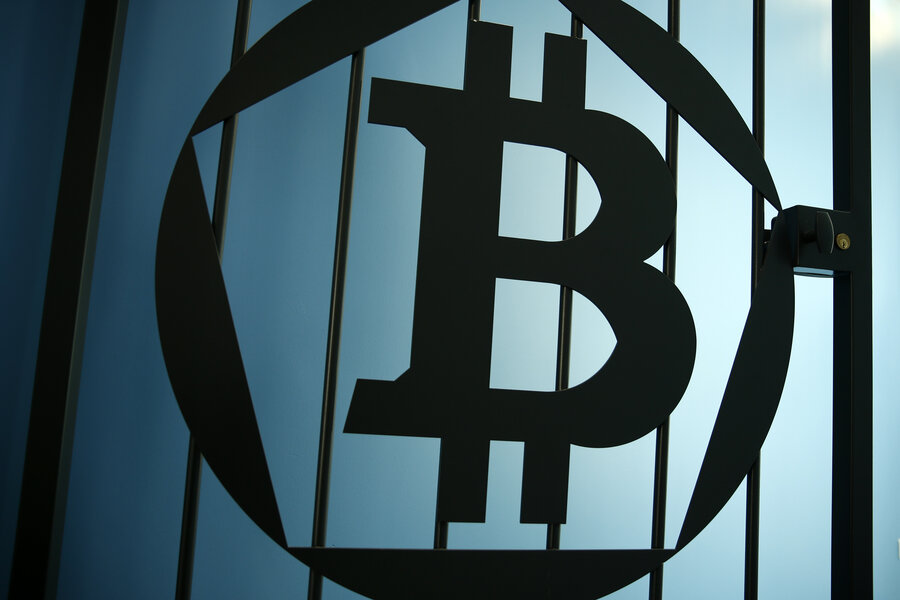
Can a Bitcoin Ban Help Stop Ransomware Attacks?
Can a Bitcoin ban help stop ransomware attacks? That’s the million-dollar question, and honestly, it’s a complex one with no easy answers. Ransomware, that digital extortion we all dread, has become frighteningly commonplace, fueled in large part by the relative anonymity and speed of cryptocurrency transactions, particularly Bitcoin. This post dives into the murky waters of this issue, exploring the potential benefits and significant drawbacks of a Bitcoin ban as a solution to the ransomware crisis.
We’ll examine how Bitcoin’s features make it a preferred payment method for cybercriminals, comparing it to traditional payment systems. Then, we’ll explore the potential consequences of a ban, both economically and legally, considering the ripple effects it could have on the broader cryptocurrency market and global finance. Finally, we’ll discuss alternative strategies to combat ransomware, emphasizing the importance of proactive cybersecurity measures and international collaboration.
Bitcoin’s Role in Ransomware Payments

Ransomware attacks have become a significant threat in the digital age, crippling businesses and individuals alike. A crucial element fueling this surge is the use of cryptocurrencies, particularly Bitcoin, for facilitating ransom payments. Understanding how Bitcoin aids these attacks is key to developing effective countermeasures.Ransomware attacks typically involve malicious software that encrypts a victim’s files, rendering them inaccessible.
Honestly, I doubt a Bitcoin ban would completely stop ransomware. Criminals are adaptable; they’d just find another cryptocurrency or payment method. Building secure systems is key, and that’s where understanding the future of app development, like what’s discussed in this great article on domino app dev, the low-code and pro-code future , becomes crucial. Better security practices are a far more effective long-term solution than trying to control a decentralized currency.
The attacker then demands a ransom, usually in Bitcoin, to decrypt the files and restore access. This process leverages Bitcoin’s decentralized nature and pseudo-anonymity to make tracking and recovering the funds extremely difficult.
Bitcoin’s Anonymity and Ransomware
Bitcoin’s design prioritizes user privacy, employing cryptographic techniques to obscure transaction details. While not truly anonymous, Bitcoin transactions are pseudonymous, meaning they are linked to alphanumeric addresses rather than directly identifiable individuals. This layer of obfuscation makes it challenging to trace the flow of funds from the victim to the attacker, hindering law enforcement efforts to recover the ransom and prosecute the perpetrators.
This contrasts sharply with traditional payment methods like bank transfers or credit cards, which leave a clear audit trail.
Comparison of Payment Methods in Ransomware Attacks
Bitcoin’s advantages in ransomware payments stem directly from its decentralized and pseudonymous nature. Traditional payment methods, on the other hand, offer greater traceability and are subject to stricter regulations, making them less attractive to cybercriminals. However, this traceability can also be beneficial for investigations.
| Feature | Bitcoin | Traditional Payment Methods (e.g., Credit Cards, Bank Transfers) |
|---|---|---|
| Traceability | Low; pseudonymous transactions make tracing difficult | High; detailed transaction records are readily available |
| Regulation | Less regulated, making it harder to track and seize funds | Heavily regulated, providing opportunities for tracing and recovery |
| Speed | Relatively fast transactions, often completed within minutes or hours | Can be slower, depending on the method and intermediary institutions |
| Reversibility | Difficult to reverse transactions once confirmed on the blockchain | Potentially reversible depending on the payment method and circumstances |
Impact of a Bitcoin Ban on Ransomware
A Bitcoin ban, while seemingly a straightforward solution to the ransomware problem, presents a complex and multifaceted challenge. Its effectiveness hinges on several factors, including the ability of law enforcement to enforce the ban globally, the adaptability of cybercriminals, and the availability of alternative payment methods. A simple ban might not be the silver bullet many hope for.The potential effectiveness of a Bitcoin ban in reducing ransomware attacks is debatable.
While Bitcoin’s pseudonymous nature and relative ease of use have made it a popular choice for ransomware payments, a ban wouldn’t eliminate the problem entirely. Criminals are resourceful and would likely adapt their methods to circumvent any restrictions. The success of a ban would depend heavily on international cooperation and the willingness of various jurisdictions to enforce it rigorously.
A fragmented approach, with some countries enforcing the ban while others don’t, would create loopholes that criminals could exploit.
Criminal Adaptation to a Bitcoin Ban
Criminals are highly adaptable and would almost certainly shift to alternative cryptocurrencies if Bitcoin were banned. Monero, with its enhanced privacy features, or other privacy coins, could become more popular choices for ransomware payments. Furthermore, they might explore traditional payment methods, such as gift cards or wire transfers, although these methods carry a higher risk of detection and tracing.
We could also see a rise in decentralized exchanges (DEXs) and peer-to-peer (P2P) transactions, making tracking even more difficult.
Hypothetical Scenario: Short-Term and Long-Term Effects
Let’s imagine a hypothetical scenario where a global Bitcoin ban is implemented. In the short term (first six months), we might see a slight decrease in ransomware attacks as criminals scramble to adapt. The initial confusion and disruption would impact their operational efficiency. However, within a year (long-term), we might observe a shift to other cryptocurrencies like Monero, potentially leading to a resurgence in attacks, albeit with a higher degree of anonymity for the attackers.
The overall success in reducing ransomware would depend on the success of law enforcement in tracking and apprehending criminals using alternative methods, and the development of better anti-ransomware technologies. A successful ban would also require a concerted effort to educate users about safe online practices and to improve cybersecurity infrastructure globally. For example, a large-scale ransomware attack using Monero might occur, demonstrating the resilience of cybercriminals in the face of such a ban.
This attack could target critical infrastructure, highlighting the need for robust cybersecurity measures even in the face of changing payment methods.
Economic and Legal Ramifications of a Bitcoin Ban
A global ban on Bitcoin, while seemingly a straightforward solution to the problem of ransomware, carries significant economic and legal ramifications that extend far beyond the cryptocurrency’s use in illicit activities. The interconnected nature of global finance and the decentralized structure of Bitcoin make a complete ban exceptionally difficult and potentially counterproductive.
Economic Consequences of a Bitcoin Ban
A Bitcoin ban would ripple through various sectors of the global economy. The cryptocurrency market, already volatile, would experience a dramatic crash, potentially impacting investors and businesses holding Bitcoin. Beyond direct investment, the broader implications are considerable. The technology underpinning Bitcoin, blockchain, has applications in supply chain management, digital identity verification, and secure data storage. Restricting Bitcoin could stifle innovation and development in these areas, hindering economic growth.
Furthermore, the loss of potential tax revenue from Bitcoin transactions would be a significant blow to governments, especially considering the increasing integration of cryptocurrencies into mainstream financial systems. For example, El Salvador’s adoption of Bitcoin as legal tender, while controversial, illustrates the potential economic benefits (and risks) associated with embracing cryptocurrency. A ban would negate the possibility of similar positive economic developments in other countries.
Legal Challenges to a Global Bitcoin Ban, Can a bitcoin ban help stop ransomware attacks
Implementing a global Bitcoin ban faces immense legal hurdles. Bitcoin’s decentralized nature makes it virtually impossible to control or shut down completely. Unlike traditional financial systems governed by central banks, Bitcoin operates on a peer-to-peer network, distributed across numerous jurisdictions. Enforcing a ban would require international cooperation on an unprecedented scale, with each country needing to enact and enforce its own legislation.
This raises questions of jurisdiction, sovereignty, and the potential for legal challenges from individuals and businesses affected by the ban. The legal precedent for such a sweeping ban is also lacking, making its enforcement highly uncertain and potentially ineffective. Furthermore, a ban could be challenged on grounds of freedom of speech or economic liberty, depending on the legal frameworks of individual countries.
Effectiveness of a Bitcoin Ban Compared to Alternative Strategies
A Bitcoin ban is not a guaranteed solution to the ransomware problem. Cybercriminals are adaptable and would likely switch to alternative cryptocurrencies or payment methods if Bitcoin becomes inaccessible. Focusing on enhancing cybersecurity measures, improving law enforcement cooperation in tracking down perpetrators, and educating users about ransomware prevention are arguably more effective long-term strategies. For instance, improved cybersecurity infrastructure could reduce the number of successful ransomware attacks, while international collaboration on investigating and prosecuting cybercriminals could deter future attacks more effectively than a Bitcoin ban alone.
The development of robust anti-ransomware software and the implementation of effective data backup systems are also critical components of a comprehensive strategy.
Unintended Consequences of a Bitcoin Ban
A Bitcoin ban could lead to several unintended consequences. It could drive Bitcoin transactions underground, making them harder to track and regulate, potentially increasing the risk of money laundering and other illicit activities. The ban could also foster the development of unregulated and less secure alternative cryptocurrencies, potentially increasing vulnerabilities to exploitation by cybercriminals. Moreover, it could damage investor confidence in the cryptocurrency market and discourage innovation in blockchain technology, potentially hindering economic growth in the long run.
The increased use of privacy-focused cryptocurrencies as an alternative to Bitcoin could exacerbate existing challenges related to tracking illicit financial activities. The complexities of enforcement, coupled with the possibility of a “cat and mouse” game between regulators and cryptocurrency users, suggest that a ban may be an ineffective and potentially counterproductive approach.
Alternative Strategies for Combating Ransomware: Can A Bitcoin Ban Help Stop Ransomware Attacks
Ransomware remains a significant threat, and while banning Bitcoin might seem like a simple solution, it’s not a silver bullet. A multi-pronged approach is necessary, focusing on prevention, disruption, and international collaboration to effectively combat this evolving cybercrime. This requires a concerted effort from individuals, organizations, and governments alike.Improved cybersecurity practices are crucial in minimizing the impact of ransomware attacks.
Stronger defenses significantly reduce the likelihood of a successful attack, and even if an attack occurs, the damage can be mitigated.
Enhanced Cybersecurity Practices
Implementing robust cybersecurity measures is the first line of defense against ransomware. This includes regular software updates, strong password policies (including multi-factor authentication), employee training on phishing and social engineering tactics, and the use of reliable antivirus and anti-malware software. Regular data backups, stored offline or in the cloud, are essential for recovery in the event of an attack.
The implementation of a zero-trust security model, where every user and device is verified before access is granted, can further strengthen an organization’s defenses. Furthermore, regular security audits and penetration testing can identify vulnerabilities before attackers exploit them. Companies like CrowdStrike and Mandiant provide advanced threat detection and incident response services that can help organizations identify and contain ransomware attacks quickly.
Law Enforcement’s Role in Disrupting Ransomware Operations
Law enforcement agencies play a vital role in disrupting ransomware operations through investigations, arrests, and asset seizures. Successful takedowns of ransomware gangs, like the recent disruption of the REvil operation, demonstrate the effectiveness of coordinated law enforcement efforts. These actions not only disrupt ongoing attacks but also serve as a deterrent to future criminal activity. The FBI’s Internet Crime Complaint Center (IC3) provides a platform for reporting cybercrimes, including ransomware attacks, which aids in investigations and the development of intelligence on ransomware groups.
International cooperation is essential in tracking down and prosecuting these criminals, as many ransomware groups operate across borders.
International Cooperation in Combating Ransomware
Ransomware is a global problem requiring a global solution. International cooperation between law enforcement agencies, cybersecurity firms, and governments is crucial in sharing intelligence, coordinating investigations, and developing effective strategies to combat ransomware. Agreements like the Budapest Convention on Cybercrime provide a legal framework for international cooperation in prosecuting cybercriminals. Joint operations, like those involving Europol and Interpol, allow for the sharing of information and resources to track down and arrest members of ransomware gangs.
The establishment of shared databases of indicators of compromise (IOCs) and threat intelligence allows for faster detection and response to ransomware attacks.
Preventative Measures for Individuals and Organizations
Taking proactive steps significantly reduces the risk of ransomware infection. Here’s a list of preventative measures:
- Regularly update software and operating systems.
- Use strong, unique passwords for all accounts and enable multi-factor authentication whenever possible.
- Educate employees about phishing scams and social engineering techniques.
- Implement robust antivirus and anti-malware software.
- Regularly back up data to offline or cloud storage.
- Restrict user privileges to limit the impact of a successful attack.
- Conduct regular security audits and penetration testing.
- Develop an incident response plan to guide actions in the event of a ransomware attack.
- Consider cyber insurance to mitigate financial losses.
- Report ransomware attacks to law enforcement.
The Feasibility of a Global Bitcoin Ban
A global ban on Bitcoin, while seemingly a straightforward solution to the problem of ransomware financing, faces numerous insurmountable hurdles. The decentralized and pseudonymous nature of Bitcoin, coupled with its global reach, makes effective suppression incredibly difficult, if not impossible. This section will explore the challenges involved in enforcing such a ban, the key players involved in the decision-making process, and the comparative likelihood of success for global versus regional approaches.
Challenges in Enforcing a Global Bitcoin Ban
A global Bitcoin ban would require unprecedented international cooperation and enforcement. The sheer scale of the task is daunting. Bitcoin transactions are recorded on a public, distributed ledger (the blockchain), making them difficult to fully censor. Even if governments managed to pressure major exchanges and payment processors to comply, peer-to-peer transactions would continue, facilitated by decentralized exchanges and mixing services that obscure the origin and destination of funds.
Furthermore, the technology underlying Bitcoin is open-source, meaning that anyone can create and run a Bitcoin node, making complete suppression highly improbable. The cat-and-mouse game between regulators and Bitcoin users would likely lead to a constant arms race, with innovators finding new ways to circumvent restrictions.
Key Stakeholders in Bitcoin Ban Decision-Making
The decision-making process surrounding a potential Bitcoin ban involves a complex web of stakeholders. Governments worldwide, particularly those with significant financial influence, would play a crucial role. International organizations like the United Nations and the G20 would also be involved in coordinating efforts. Central banks, concerned about the potential impact on monetary policy and financial stability, would exert considerable influence.
The private sector, including cryptocurrency exchanges, payment processors, and technology companies, would be key players, as their cooperation would be essential for the success of any ban. Finally, the decentralized nature of Bitcoin itself means that individual users and developers also hold a degree of influence, albeit a less centralized one.
Global vs. Regional Bitcoin Ban: Likelihood of Success
A global ban on Bitcoin is far less likely to succeed than a regionally focused approach. The decentralized nature of Bitcoin renders a worldwide prohibition practically infeasible. Achieving consensus among all nations, with their diverse political and economic systems, is a monumental task. Even if a significant number of countries agreed, enforcement would be patchy and inconsistent, leading to a fragmented regulatory landscape that would likely prove ineffective.
A regionally focused approach, on the other hand, might be more successful, as it requires a smaller level of cooperation and enforcement resources. However, even a regional ban would face challenges due to the ease with which Bitcoin can be moved across borders. The success of any ban, regardless of its scope, would depend heavily on the level of international cooperation and the willingness of key stakeholders to participate.
Technological Hurdles in Implementing a Bitcoin Ban
Implementing a truly effective Bitcoin ban presents significant technological hurdles. The distributed nature of the Bitcoin network makes it resilient to censorship. Shutting down individual nodes or exchanges would be ineffective, as new nodes and exchanges could quickly replace them. Furthermore, the use of privacy-enhancing technologies like mixing services and decentralized exchanges makes it challenging to trace the flow of Bitcoin, making enforcement even more difficult.
While governments could theoretically try to control internet access or block specific IP addresses associated with Bitcoin transactions, this would severely restrict internet freedom and likely prove ineffective in the long run, given the availability of circumvention tools. The technological arms race between regulators and Bitcoin users would likely continue indefinitely, making a complete ban highly improbable.
Final Thoughts

So, can a Bitcoin ban truly stop ransomware attacks? The short answer is probably not. While it might create some initial disruption, criminals are adaptable and would likely find alternative methods of payment. A more effective approach involves a multi-pronged strategy: improving cybersecurity practices, strengthening law enforcement efforts, and fostering greater international cooperation. Ultimately, a holistic approach that addresses both the technical vulnerabilities and the criminal infrastructure is far more likely to succeed in curbing the ransomware threat than a simple ban on one cryptocurrency.
FAQ Explained
What other cryptocurrencies could ransomware attackers use if Bitcoin is banned?
Many other cryptocurrencies exist, such as Monero, which offers even greater anonymity. Attackers could also shift to less traceable payment methods.
Wouldn’t a Bitcoin ban hurt legitimate Bitcoin users?
Absolutely. A ban would severely impact the many legitimate businesses and individuals who use Bitcoin for various purposes. It would also likely damage trust in cryptocurrencies in general.
How effective are current anti-ransomware measures?
Current measures vary in effectiveness. While some are quite successful at preventing attacks, others are reactive and struggle to recover data or prosecute attackers.
Is international cooperation crucial in fighting ransomware?
Yes, ransomware attacks often cross borders, requiring global cooperation to track down perpetrators, share intelligence, and coordinate enforcement.





